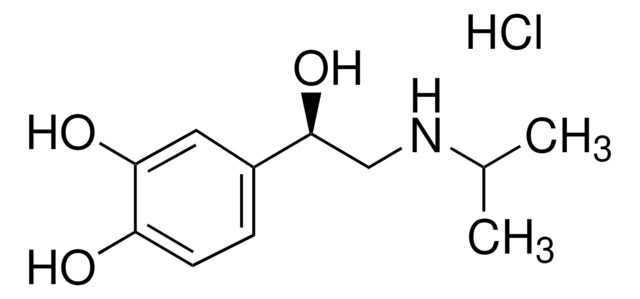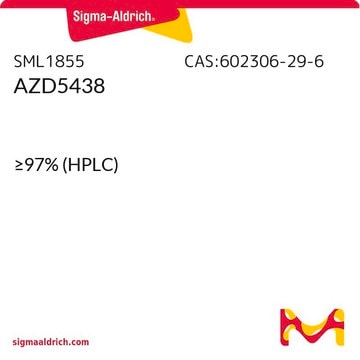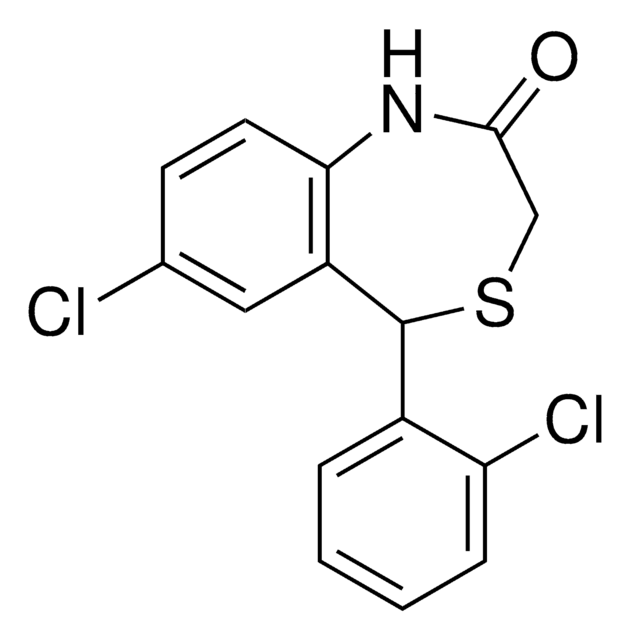Fontos dokumentumok
M0199
Mdivi-1
≥98% (HPLC), powder, mitochondrial division DRP inhibitor
Szinonimák:
3-(2,4-Dichloro-5-methoxyphenyl)-2,3-dihydro-2-thioxo-4(1H)-quinazolinone, 3-(2,4-Dichloro-5-methoxyphenyl)-2-sulfanyl-4(3H)-quinazolinone
About This Item
Javasolt termékek
Terméknév
Mdivi-1, ≥98% (HPLC), powder
Minőségi szint
Teszt
≥98% (HPLC)
Forma
powder
szín
white to beige
oldhatóság
DMSO: >20 mg/mL
kiszállítva
wet ice
tárolási hőmérséklet
−20°C
SMILES string
COc1cc(N2C(S)=Nc3ccccc3C2=O)c(Cl)cc1Cl
InChI
1S/C15H10Cl2N2O2S/c1-21-13-7-12(9(16)6-10(13)17)19-14(20)8-4-2-3-5-11(8)18-15(19)22/h2-7H,1H3,(H,18,22)
Nemzetközi kémiai azonosító kulcs
NZJKEVWTYMOYOR-UHFFFAOYSA-N
Általános leírás
Alkalmazás
- in embryonic thoracic aorta A7r5 cells to inhibit cell migration and proliferation
- in mitochondrial network reshaping and reactive oxygen species (ROS) production studies in oligodendrocyte precursor cells (OPCs)
- to induce mitochondrial damage in lung fibroblasts
Biokémiai/fiziológiai hatások
Tulajdonságok és előnyök
Tárolási osztály kódja
11 - Combustible Solids
WGK
WGK 3
Lobbanási pont (F)
Not applicable
Lobbanási pont (C)
Not applicable
Válasszon a legfrissebb verziók közül:
Analitikai tanúsítványok (COA)
Nem találja a megfelelő verziót?
Ha egy adott verzióra van szüksége, a tétel- vagy cikkszám alapján rákereshet egy adott tanúsítványra.
Már rendelkezik ezzel a termékkel?
Az Ön által nemrégiben megvásárolt termékekre vonatkozó dokumentumokat a Dokumentumtárban találja.
Az ügyfelek ezeket is megtekintették
Cikkek
Cell cycle phases (G1, S, G2, M) regulate cell growth, DNA replication, and division in proliferating cells.
Apoptosis regulation involves multiple pathways and molecules for cellular homeostasis.
Tudóscsoportunk valamennyi kutatási területen rendelkezik tapasztalattal, beleértve az élettudományt, az anyagtudományt, a kémiai szintézist, a kromatográfiát, az analitikát és még sok más területet.
Lépjen kapcsolatba a szaktanácsadással















